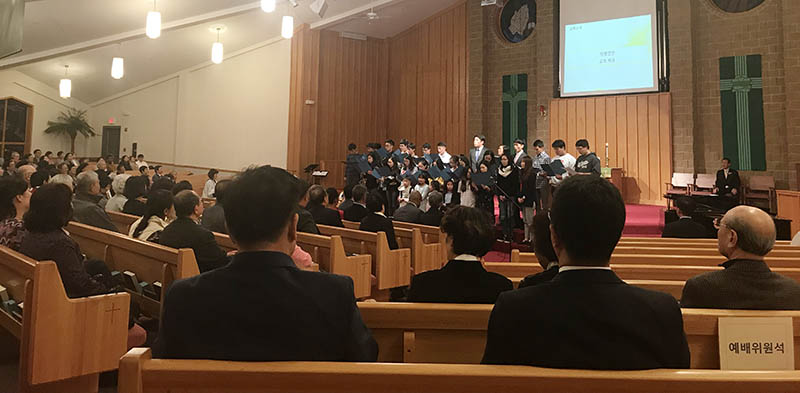
Flossmoor’s Korean Methodist church celebrates 40 years of faith, fellowship
As a hallmark of Korean worship, each service at Flossmoor’s Korean United Methodist Church is followed by a meal. On a recent Sunday, member Song Kim explained that it is “Korean party food” that members line up for. The room is aromatic with
